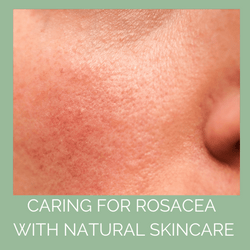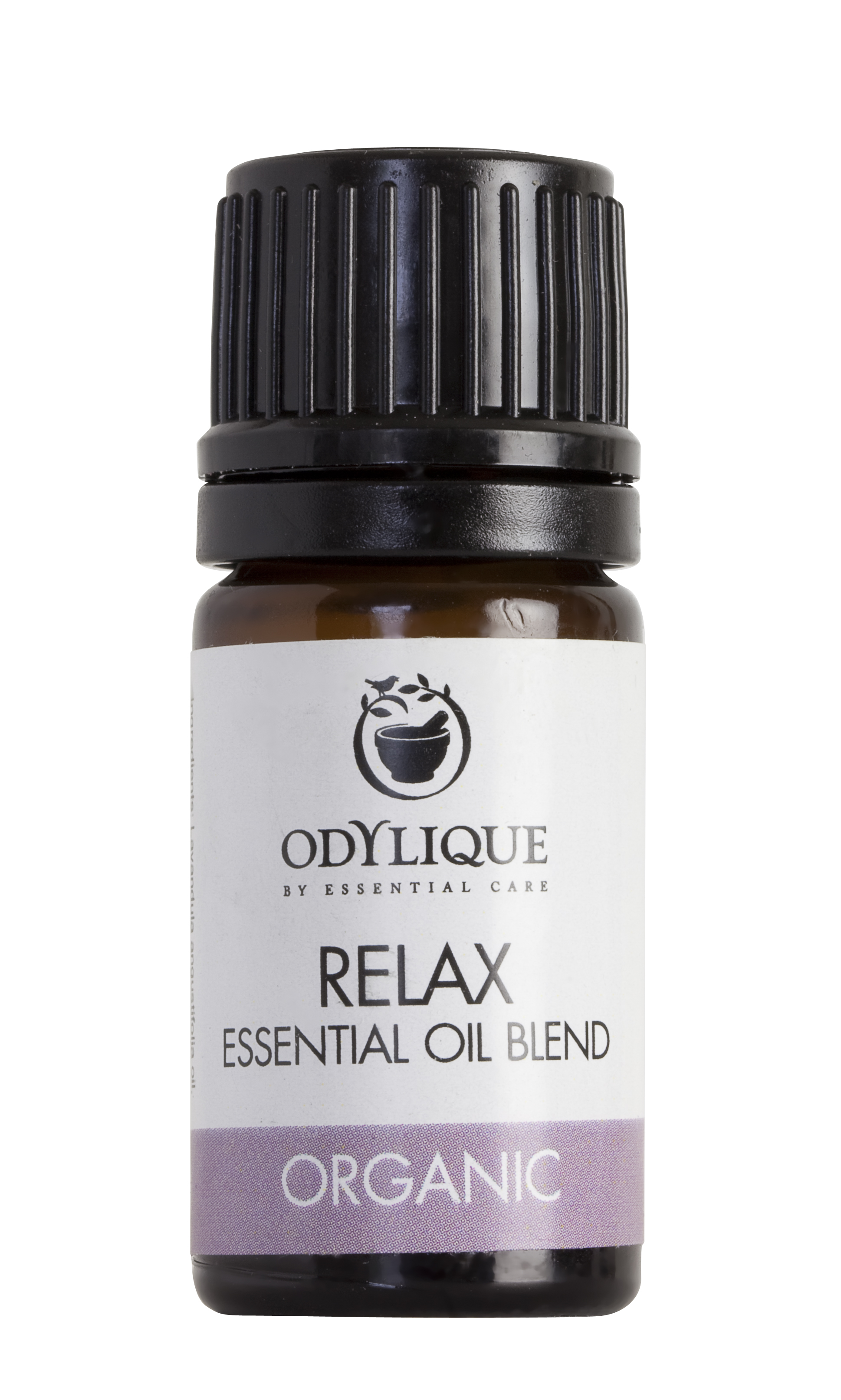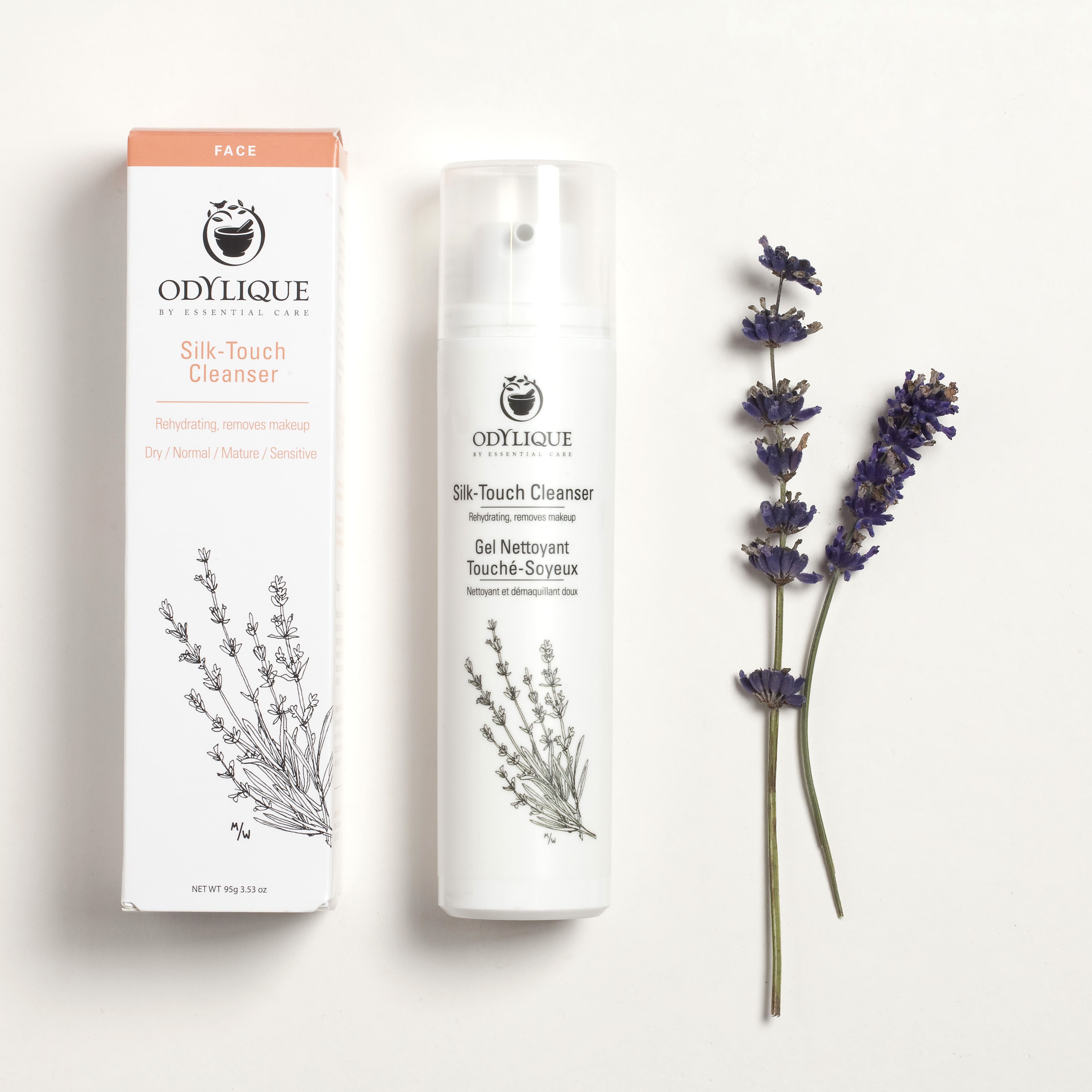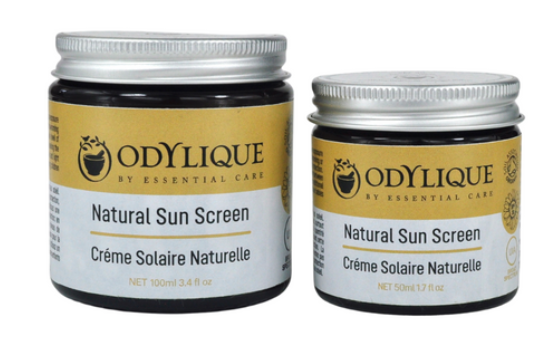In this guide we’ll be discussing the skin condition Rosacea; What it is, how to know if you have it, and how natural skincare can be a great support in managing the inflammation and redness it can cause.
If you’re experiencing skin redness, soreness, and inflammation on your face, you may have rosacea. You wouldn't be alone. It is believed around 1 in 10 adults have some form of rosacea.
Rosacea, along with eczema and dermatitis, are the most common reasons customers discover our organic skincare range. Lots of you find that mainstream ‘chemical’ based products are just too harsh.
Whilst it is a skin condition, because it affects our appearance, Rosacea can feel incredibly damaging to our perception of our attractiveness and make us feel embarrassed. Many of you have told us how much your self-esteem is harmed, more than your skin.
Because of this, it is important to look for ways to reduce symptoms and feel better, both in your skin and about it.
If you think you might have the condition, read on for symptoms, lifestyle management tips and advice on which products might be right for you.
What is Rosacea?
Rosacea is a common inflammatory skin condition, thought to be caused by an impaired skin barrier that causes redness, pain, and inflammation.
It is sometimes mistaken for sunburn, or weather damage due to the flushing across the nose and cheeks.
Sometimes characterised with pus filled white bumps, it may be mistaken for acne. It mostly appears across the forehead and nose but can affect the whole face down to the chest in severe cases.
Alternatively, or in addition, you may see tiny red broken capillaries (veins), areas of dryness and general swelling in affected areas of the skin.
Who is Most Affected by Rosacea?
All humans can be affected by Rosacea, although it has been called ‘the curse of the celts’ due to its high prevalence in those of Irish descent.
It’s especially common in:
- Middle aged men – particularly smokers and heavier drinkers
- Women in the early stages of menopause
- People of Irish, Scottish, Northern European or Scandinavian descent
Asian people can and do have rosacea but because the pigment is harder to see on darker skins it is regularly undiagnosed. Symptoms appear more like pain, acne and inflammation.
Signs and Symptoms of Rosacea
Visible Veins and Redness: Rosacea prone skin looks reddened which is partially the result of broken veins under the surface of the skin.
Burning and Pain: The skin can feel hot to the touch, may feel like it is burning or stinging and increasingly sore.
Small bumps and pus filled spots: These may look similar to acne, but are not acne and should not be treated as such.
Nose Enlargement: Over time and specifically for men, the skin on the nose may thicken. This can lead to a condition called rhinophyma. The pores look wider, the nose looks bulbous and red, and men can find this very embarrassing.
Eye problems: Sore eyes and eyelids, especially near the roots of the eyelashes. This is known as ocular rosacea. In some people, the eye symptoms precede the skin symptoms.
What Causes Rosacea?
According to the NHS, the exact cause is not known.
Some research suggests genetic factors.
A challenged immune system, environmental factors, hormonal changes and stress are also believed to play a role in rosacea.
Most recent research has focused on imbalances in the skin microbiome and gut microbiome as a factor in rosacea. Some studies report a link between rosacea and inflammatory gastrointestinal disorders like IBS and coeliac disease.
There are several skin microorganisms being studied in the context of rosacea, especially demodex folliculorum and bacillus oleronius which are more prevalent on rosacea-prone skin.
What Triggers Rosacea?
We do know that for someone with the condition there are some very common triggers to avoid:
Alcohol: Asian skins that experience the ‘alcohol flush’ are much more likely to also have rosacea. In those with Caucasian skin with rosacea, alcohol dehydrates the skin and makes the irritation and inflammation far worse. It was once thought to be the number one cause of rosacea.
Coffee and Tea: Caffeine is another dehydrating factor that can dramatically worsen your rosacea. The burning in particular is affected by the hot water.
Hot water in general can make the pain and inflammation worse. Avoid very hot showers, saunas, steam rooms and Jacuzzis.
Skin exfoliants, including glycolic acid, salt, microbeads, AHA, BHA, and Retinoids must be avoided. They will make the condition far worse in it’s active phase and may trigger it in its dormant one.
Same with treatments like laser therapy, derma rolling and peels.
Cheese and dairy may be a key trigger, along with bread if you are gluten intolerant.
Lots of aerobic exercise like running can be problematic. The sweat can irritate, the exertion can break more capillaries and the sun exposure from exercising outdoors also contributes to rosacea.
How to Improve and Reduce Rosacea Naturally
BREATHE
Firstly, take steps to tackle your stress and anxiety. A daily mindful practice or meditation has been shown to work wonders in reducing blood pressure and inflammation.
You might want to try a relaxing breath practice with a relaxing aromatherapy blend. Please use an oil burner for this though, as pure essential oils are far too strong for direct use on rosacea prone skin.
MOVE
Whilst running every day won’t help, more gentle movement, like Yoga, Pilates or Barre help release endorphins that reduce stress. Increasing the blood flow gently to the skin may help with providing nutrients and overall inflammation reduces.
EAT
Ayurveda tells us that Rosacea is an excess of fire (Pitta Dosha). It’s interesting that the ancient wisdom tells us to leave off spices and hot food to calm your dosha, and we know today that this is true.
Leave the curries, chillies and salt and adopt a more Mediterranean diet rich in vegetables, fruit and heart healthy, skin balancing oils.
Talk to a nutritionist about your gut microbiome. There is increasing evidence to suggest rebalancing your gut with synbiotics (prebiotics and probiotics) will reduce the likelihood of rosacea flare-ups.
CARE
Even the NHS recommends gentle skincare products designed for sensitive skins. There are lots of reasons for this, not least the harshness of the ingredients.
If you use strong shampoos, and it gets on your skin this will inflame your rosacea. Ingredients like Sulphates are harsh, stripping the skin of its natural barrier and leaving it exposed. Switch to natural shampoo and conditioner instead.
Soap based cleansers which foam are too strong and may dry the skin further, leading to an overproduction of oil and more redness. Acid-based cleansers are also a no-no. Instead try a very gentle, calming cleanser like our Silk Touch, or Creamy Coconut Cleanser, both of which are easy to remove, and are rich enough for very dry skin and soothing on sore areas.
A rich moisturiser that works to protect the skin’s acid mantle (the bacteria that help keep it balanced and safe) is key. That means no strong fragrances, harsh preservatives or alcohol-rich skincare.
Prebiotic moisturisers - those with added prebiotic ingredients may be especially helpful in addressing the skin microbiome imbalance, making the skin more resistant and reducing skin stress.
And ingredients like rosehip, that are known to actively reduce redness and swelling, support the skin’s natural turnover and cell rejuvenation. Repair Lotion, with its super-strength calming chamomile may also help cool and calm inflamed patches.
If flushing is a problem, you may want to try a gentle tonic throughout the day. Again, one with rose is ideal for very sensitive skins, helping to soothe the irritation and reduce the colour.
Wear a natural SPF30 if in the sun for any length of time.
Why Certified Organic Skincare is Better for Rosacea
There are many reasons we believe that certified organic skincare is superior when tackling rosacea.
Research shows that organically grown fruit has significantly higher levels of polyphenols – the powerful antioxidants that help protect the skin against free radical damage – than non-organic. This gives the skin its best chance of self-help.
Certified organic skincare is made with natural ingredients grown without insecticides. The process of preserving certified organic products involves involves much gentler substances. Your skin will thank you for the purity of the product and absence of harmful chemicals.
Read more expert guides about sensitive skin here >




